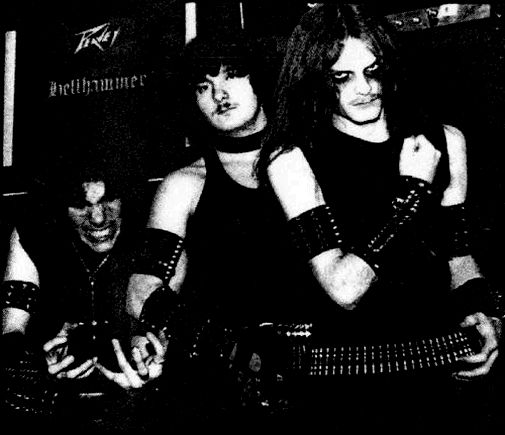In contrast to their peers, Hellhammer's brand of metal was all but stripped of NWoBHM influences and instead focused on creating a more morbid aesthetic, straying from the energetic soundscapes of Motorhead and Iron Maiden and producing material more akin to Black Sabbath's sinister title track than anything else. Lyrically, they simply took Venom's lyrical themes a step further into morbid realms unseen before.
Musically, Hellhammer, despite an entirely new atmosphere, maintains some of their roots. Their music revolves around simplistic and primitive riffcraft with infectious hooks, much like the works of Motorhead and Venom. While their music is more mid-paced, even doomy at times (see the legendary "Triumph of Death"), proto-thrash riffs abound as they do in prominent Venom tracks like "Witching Hour" or "Black Metal".
Production-wise, the earliest Hellhammer demos leave much to be desired; however, the production on this particular demo is perfectly fitting, as it is on the upcoming Celtic Frost work "Morbid Tales"; in fact, I'd say it's superior to Frost's "Emperor's Return".
In short, with this demo Hellhammer leave a permanent mark on the worldwide metal scene, and the extreme metal scene specifically would be forever indebted to Hellhammer's work. Without Hellhammer/Celtic Frost, one must question whether other monolithic achievements from Autopsy, Winter, and others would even exist. And, of course, the issue of influence vs. quality is simply non-existent here; Hellhammer was not an influential force soon to be surpassed by much better successors, but rather their work remains relevant today in terms of quality. "Triumph of Death" specifically is a piece that has yet to be matched by a similar song in the extreme metal scene.


No comments:
Post a Comment